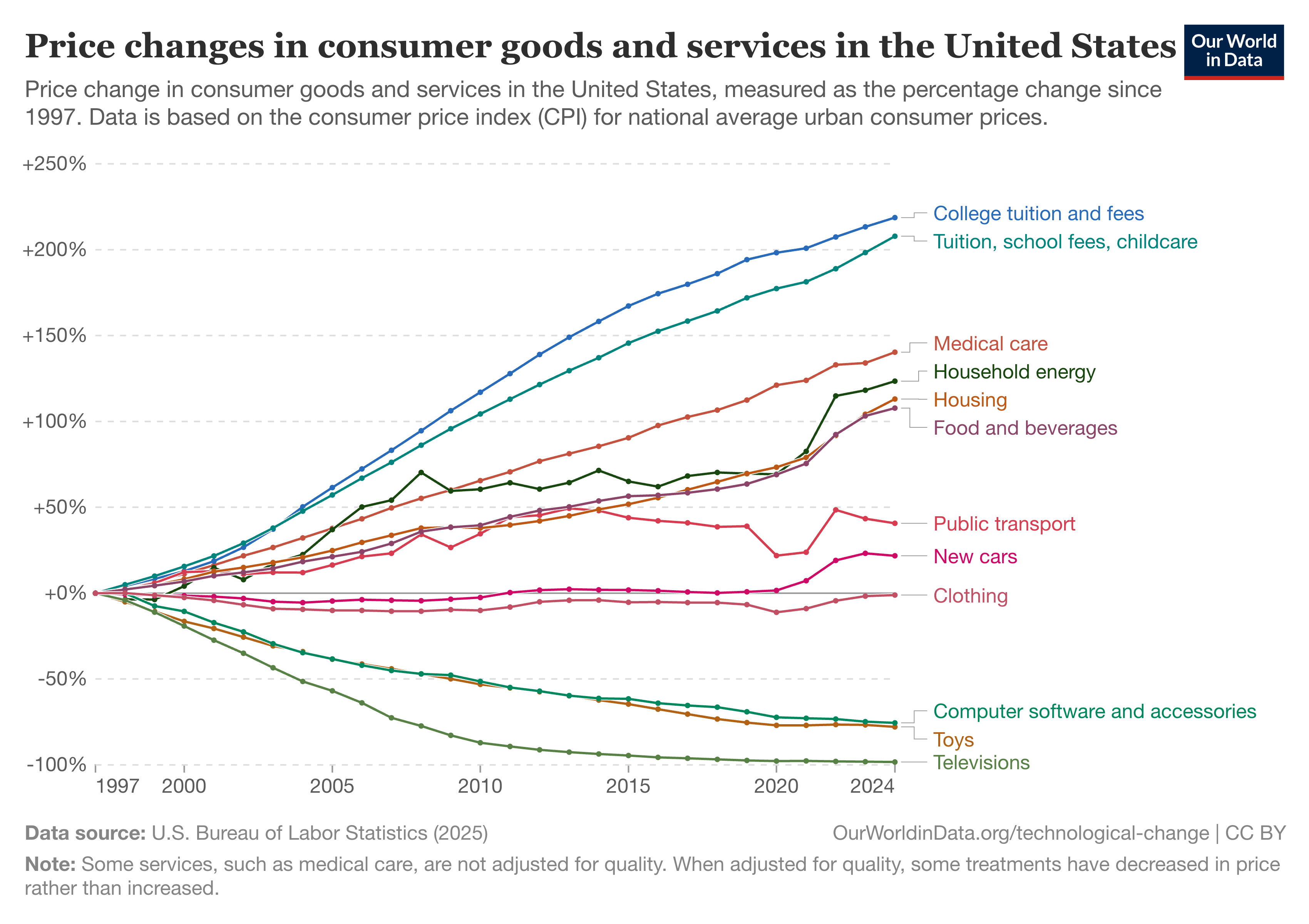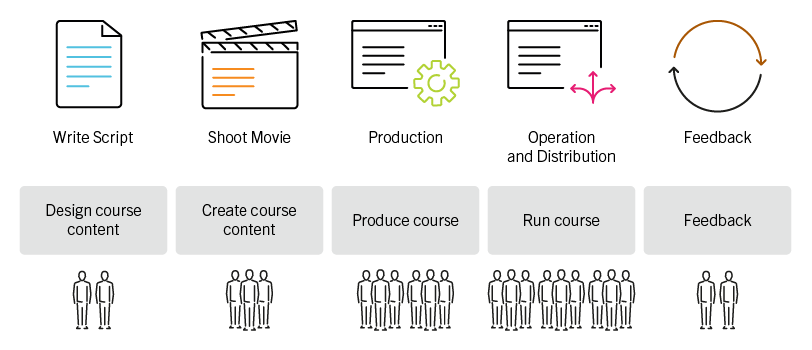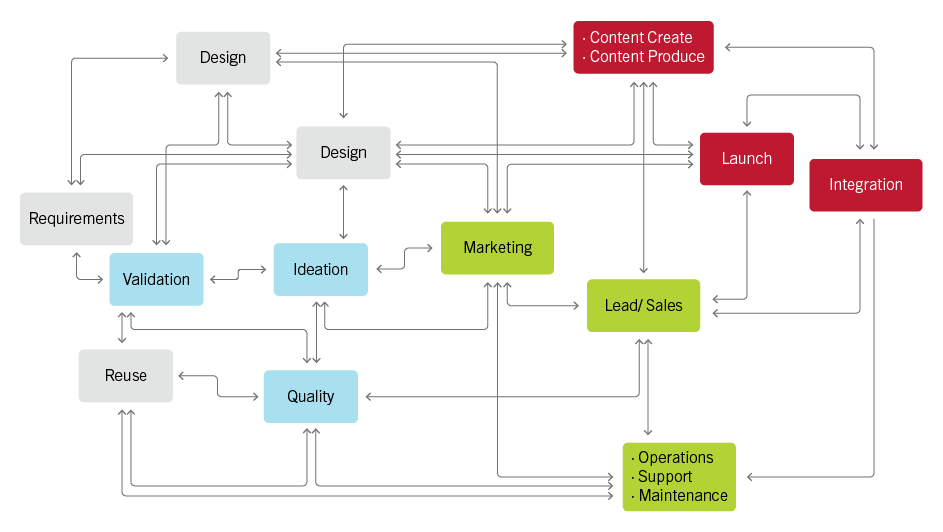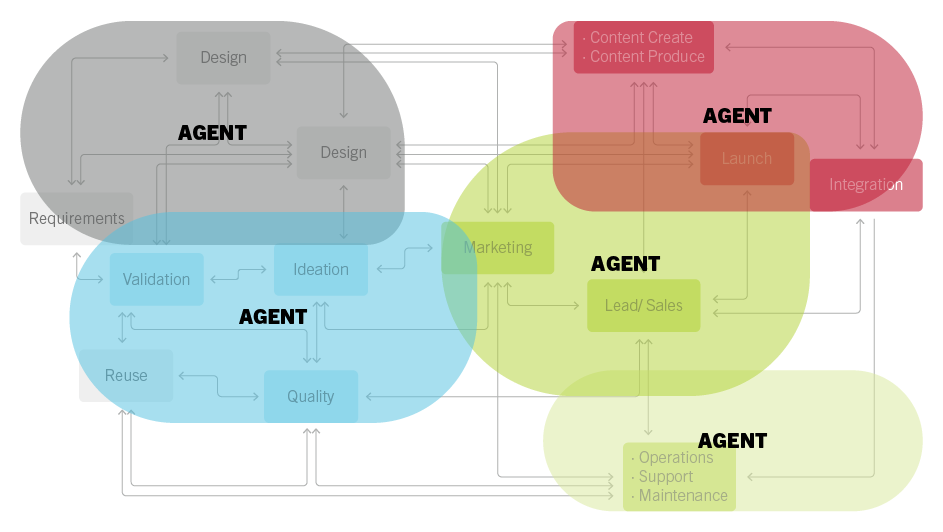The AI Enabled Economy¶
Objectives
- Gain a better understanding of how AI can be incorporated into an enterprise strategy
- Learn about the technological building blocks that enable AI applications
- Build a solid foundation on how to begin your own learning journey
The "Applied Generative AI for Digital Transformation" course provides me with cutting-edge skills to strategically leverage generative AI innovations and practically accelerate digital transformation initiatives.
- Use generative AI tools to automate workflows and increase productivity
- Apply the principles of prompt engineering to enhance outcomes in your work
- Use generative AI for domain-specific tasks such as video summarization, automated research, and conversational data insights
1. Generative AI and the Enterprise¶
Looking Forward: Human + Tool ⏩️ Human + Machine ⏩️ Data, AI, and Networks 🚀¶
In the following section we will consider concepts ranging from tools, machines, data, and AI and networks to see how they have evolved over time.
| Human + Tool | Human + Machine | Data, AI, and Networks |
|---|---|---|
 |
 |
 |
Thinking about the evolution of agriculture, there have been significant shifts throughout history driven by technological advances.
- First there was the integration of tools which greatly improved efficiency.
- Then there was the adoption of machinery, a grouping of tools, further improving efficiency.
- Finally, present day intensive agriculture uses highly complex machinery involving data and AI.
| Human + Tool | Human + Machine | Data, AI, and Networks |
|---|---|---|
 |
 |
 |
When it comes to computation we have had a similar evolution.
- Early on s humans used a relatively simple tool (tabulating machines)
- Then it was a human with a machine (computers)
- Finally, today we have devices that can access a world of resources, data, AI, networks, and an increasing number of models—all designed to facilitate our completing tasks.
| Human + Tool | Human + Machine | Data, AI, and Networks |
|---|---|---|
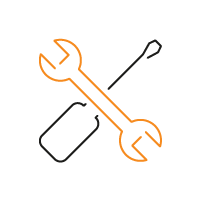 |
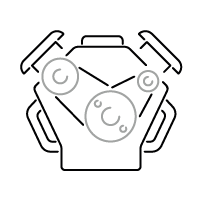 |
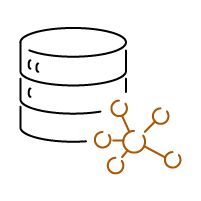 |
A clear pattern can be observed. First a tool is integrated into completing tasks, it is mastered and then transformed into a machine to further increase efficiency. Finally, we have Data, AI, and Networks as well as access to a multitude of emerging models and ecosystems of tools that exist in platforms such as the Cloud.
Price changes in consumer goods and services in the United States
Additionally, certain types of products have been dropping in price like computer software and accessories, toys, and televisions since the 90s while many others have been increasing. Of these, some like college tuition could be dramatically reduced by the development of AI tools like LLMs.
Image adapted from: ( Our World in Data, n.d. )
🔁 Increasing Automation: Amplify, Reimagine, Automate¶
In order to ground the discussion on evolving industries and how technology is transforming the way we work we will present an example. We will compare the steps for making educational online courses, like the one you are taking now, with film production.
-
1. Amplify: Increase Process Productivity
This is the ability to amplify your work using AI much like tools in agriculture. Some of these AI tools are already in place and we simply want to improve them.
- Applied to an online course: A customer service chatbot that uses AI to provide responses or support.
-
2. Reimagine: Transform Processes and Business Models
This is the ability to reimagine how you approach and deliver certain components of the product.
- Applied to an online course: Automatically creating questions and grading them based on a provided knowledge source. These questions are not limited to numerical answers but textual too.
-
3. Automate: Business/Product Fully Automated with AI
This is the ability to transform the product creation process such that it becomes fully autonomous from start to finish, including post sale services.
- Applied to an online course: All the departments and their interactions among each other executed by agents.
So far, we have seen how product development from start to finish is a lengthy, complex process. Now we will see how AI is being adopted to reduce human in the loop. We will discuss three levels of maturity when it comes to companies onboarding the technology.
Production Complexity: Film and Online Course Analogy
- Below we have included the general steps needed in each scenario. It is important to note how each step requires different numbers of people and massive teams are needed for a final product.
